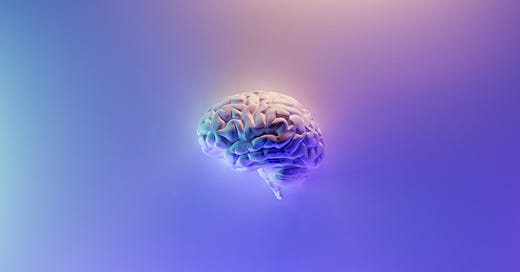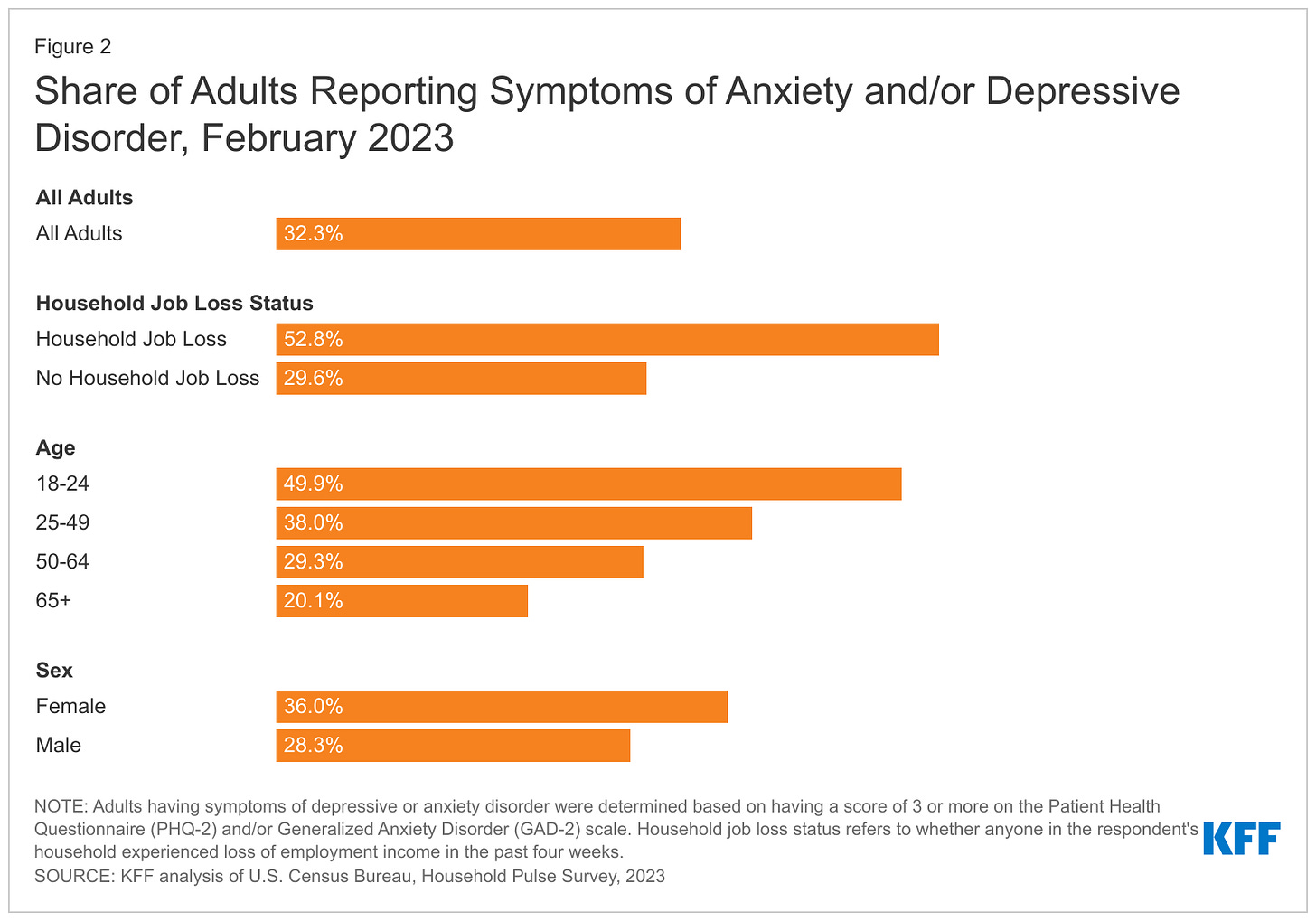🤝 Should we suppress difficult thoughts?
Your 10/01/23 update on all things mental health
Good morning! ☀️
And Happy Sunday!
Today we cover some interesting (and controversial) research on thought suppression, California’s Community Assistance, Recovery, and Empowerment (CARE) Court, and more.
Question: What percent of people ages 65+ report having symptoms of anxiety or depression?
Suppressing thoughts and mental health
Conventional wisdom has it that suppressing thoughts can be dangerous as it can lead to a “bubbling up” later of thoughts with greater frequency and intensity, worsening mental health. In therapy, clinicians teach clients to identify and reframe challenging thoughts, as in cognitive behavioral therapy, or to approach thoughts with acceptance and neutrality, as in mindfulness-based therapy.
New research, however, is challenging this conventional wisdom.
While witnessing the breakdown of people and families in “political education” camps and prisons for Uighurs, Zulkayda Mamat noticed that “the most resilient Uighurs” coped with their trauma by pushing “the distressing memories out of their mind” (link). Given her observations, she sought to use research to figure out if her intuition about thought suppression was correct. In her study, Zulkayda trained 120 adults from 16 countries to suppress their thoughts, showing that thought suppression led to “enduring mental health gains.”
It’s important to note that this line of research is new and that further research must be completed before coming to broader conclusions on the efficacy of thought suppression. Furthermore, some psychologists warn that people should not “practice suppressing memories of a recent traumatic event” as research indicates this could “increase their risk of developing PTSD”.
You can read the research article here (link)
Other mental health-related news
California’s Community Assistance, Recovery, and Empowerment (CARE) Court will launch in 8 counties by December. The program enables judges to “order people with untreated psychotic disorders, such as schizophrenia, to get help, with counties required to provide the aid.“ Critics of the program continue to denounce forced treatment, seeing it “as a pipeline to conservatorship and the deprivation of civil liberties“ (link)
Ozempic, an injectable drug approved for type 2 diabetes, is being used by many for weight loss, despite not being approved by the Food and Drug Administration for this purpose. Recent reports, however, have showed that people taking the drug experience symptoms of anxiety, depression or suicidal thoughts (link)
Starting this month, city shelters in New York have to identify and hire mental health professionals to work on site at the 30 largest family shelters in the city (link)
We previously covered the backlash against requiring law students and bar candidates to disclose mental health concerns. In response to this, the Supreme Court of New Jersey will revise the question to one where candidates need not disclose effectively treated mental health concerns. They will still need to disclose “whether they currently have a substance abuse or mental health issue that affects their ability to practice law in a competent and ethical manner” (link)
Applicants are suing the Peace Corps of discriminating against applicants with disabilities. This is in response to people who were denied application due to mental health concerns such as being in therapy for treatment of anxiety (link)
Reads on research
A study looked into the correlation between seasonal patterns and temperatures and substance-related disorders in New York State during 1995-2014. The research found that “an increase in temperature 0–6 days before hospital visits was associated with higher hospital visit rates for both alcohol- and substance-related disorders” up to a certain point (link)
Reads on policy
The Biden-Harris Administration will provide a $206 million grant to support youth mental health (link). This includes:
$131.7 million in grant programs that connect youth and families to behavioral health services
$55 million to expand access to mental health care for young people, including access to mental health care in schools
$20 million to improve the quality of mental health services provided to children involved in the child welfare system
A bipartisan behavioral health bill is aimed at integrating behavioral health in primary care settings for Medicare beneficiaries (link). The bill will:
Increase specific Medicare reimbursement rates that will offset costs of bringing mental health care into doctors’ offices
Create reporting requirements that outline the integration of behavioral health within primary care
Tech, business & mental health 😎
Cartwheel, a startup that partners with school districts to provide virtual mental health services, raised $20 million in Series A funds (link)
🍕 & Therapy? Costco is broadening its reach into healthcare through a partnership with Sesame, a New York-based medical care marketplace startup that connects consumers directly with primary care and mental health clinicians for appointments online and in-person without insurance (link)
Former Tinder CEO Renate Nyborg’s startup Meeno, which aims to fight loneliness through an AI-powered chatbot, announced that it has raised a $3.9 million seed round led by Sequoia (link)
Being, a Delaware-based startup, is on a mission to scale its mental health app, which aims to help users create a map of their concerns to better navigate their everyday issues (link)
Answer: 20%, according to a 2023 Kaiser Family Foundation survey (link)
If you enjoyed this newsletter, consider sharing it with a friend or colleague. You can directly forward the newsletter, or use the button below to get rewards for referrals. The goal is to be able to hire support staff to run and sustain the newsletter. Thank you for your support 🙏




